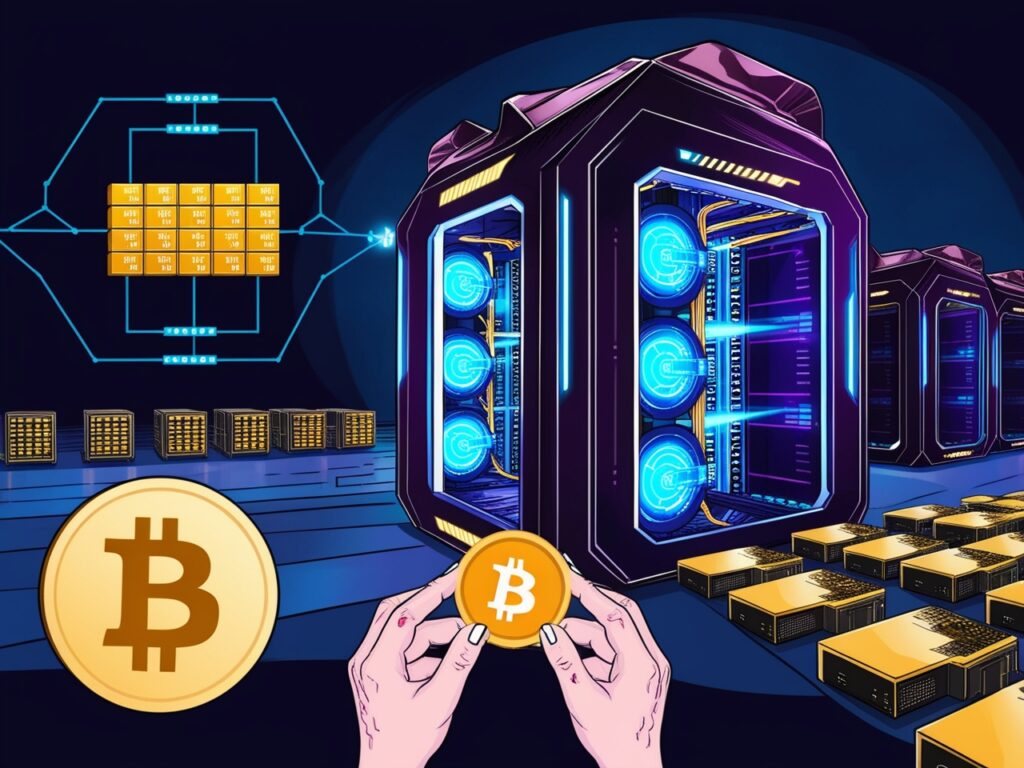Bitcoin mining is a fundamental component of the Bitcoin network. It is the process by which new bitcoins are created and transactions are verified on the blockchain. If you are a beginner looking to understand how Bitcoin mining works, you are in the right place. This guide will walk you through the basics, mechanisms, and important considerations of Bitcoin mining.
What is Bitcoin Mining?
At its core, Bitcoin mining is the process of validating transactions and adding them to the public ledger known as the blockchain. Miners use powerful computers to solve complex mathematical problems that allow them to create new blocks. Every time a miner successfully adds a block to the blockchain, they are rewarded with newly minted bitcoins.
Why is Mining Important?
Transaction Verification: Miners ensure that all transactions are legitimate. By validating transactions, they prevent double spending and fraud.
Blockchain Security: The decentralized nature of mining makes the blockchain secure. More miners contribute to the network, making it increasingly difficult for any malicious actor to alter the transaction history.
Bitcoin Creation: Mining is the only way to create new bitcoins, which follows a predictable supply schedule until the hard cap of 21 million bitcoins is reached.
How Does Bitcoin Mining Work?
1. The Mining Process
Bitcoin mining involves several key steps:
- Transaction Data: When users send bitcoins, transaction data is broadcast to the Bitcoin network.
- Block Creation: Miners collect and validate these transactions and group them into a block.
- Puzzle Solving: Miners compete to solve a cryptographic puzzle called Proof of Work (PoW). This involves finding a hash that meets a specific criterion.
- Addition to the blockchain: The first miner to solve the puzzle broadcasts their solution, and if verified by the network, the block is added to the blockchain.
2. The role of the hash
The hash is a crucial part of the mining process. A hash function takes an input and produces a fixed-size string of characters. In Bitcoin, miners use the SHA-256 hash algorithm. The goal is to find a hash that starts with a certain number of leading zeros, making the solution difficult to obtain but easy to verify.
3. Mining difficulty
The mining difficulty is adjusted roughly every two weeks to ensure that new blocks are added to the blockchain roughly every 10 minutes. If blocks are mined too quickly, the difficulty increases; if it is too slow, it decreases. This self-regulating mechanism helps maintain a consistent block generation time.
4. Rewards and incentives
When a miner successfully adds a block, they receive a block reward, which consists of newly created bitcoins and transaction fees from the transactions included in that block. The current block reward is 6.25 bitcoins (as of the last halving in May 2020) and will decrease over time due to halving events that occur roughly every four years.
Getting started with Bitcoin mining
1. Choose your mining hardware
To start mining Bitcoin, you need specialized hardware known as ASIC (application-specific integrated circuit) miners. These machines are specifically designed to mine cryptocurrency and are much more efficient than standard GPUs (graphics processing units).
2. Select a mining pool
Mining on your own can be challenging due to high competition. Joining a mining pool allows miners to combine their resources and share rewards. This can increase the chances of earning bitcoins regularly, albeit with reduced payout compared to solo mining.
3. Set up your wallet
Before you start mining, you need a secure wallet to store your bitcoins. There are several types of wallets, including hardware wallets, software wallets, and mobile wallets. Choose one that suits your needs when it comes to security and accessibility.
4. Download mining software
You’ll need mining software to connect your hardware to the Bitcoin network and pool. Popular options include CGMiner, BFGMiner, and EasyMiner. Follow the software’s setup instructions to get started.
5. Monitor your operations
Once everything is set up, you can start mining. Regularly monitor your hardware performance, electricity costs, and bitcoin earnings to ensure your mining operation remains profitable.
Challenges of Bitcoin Mining
- High electricity costs: Mining consumes a significant amount of energy, leading to high electricity bills, which can impact profits.
- Difficulty and competition: As more miners join the network, the difficulty increases, making it harder to earn rewards.
- Regulatory issues: Different countries have different regulations on cryptocurrency mining, which can impact your ability to mine legally and profitably.
- Market volatility: The price of bitcoin can fluctuate wildly, affecting the profitability of mining operations.
Conclusion
Bitcoin mining is an essential process that underpins the security and functionality of the Bitcoin network. While it can be a profitable venture, it also presents challenges that require careful consideration. By understanding how Bitcoin mining works and taking the appropriate steps, beginners can effectively participate in this exciting aspect of cryptocurrency.
FAQs
1. Can I mine Bitcoin on my computer?
While technically possible, it is not cost effective due to high competition and mining difficulty. ASIC miners are recommended for effective mining.
2. What is a mining pool?
A mining pool is a group of miners who combine their computational resources to increase the chances of mining a block and share the rewards proportionally.
3. Is Bitcoin mining legal?
Legality varies by jurisdiction. Always check local regulations before starting a mining operation.
4. How much can I earn from mining?
Earnings depend on factors such as mining hardware, electricity costs, the price of Bitcoin, and whether you mine alone or in a pool.

